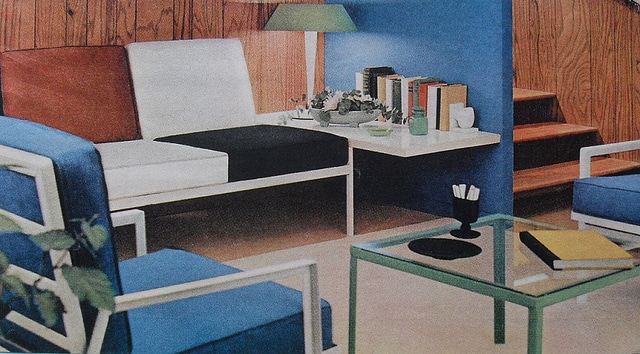Discovering the Long-Term Impact of Minimalism on Psychological and Emotional Health
Discovering the Long-Term Impact of Minimalism on Psychological and Emotional Health
Blog Article
Comprehending Minimalism: Techniques for Reducing Mess and Enhancing Clarity in Everyday Living
Minimalism is progressively identified as a viable method to boosting quality and emphasis in today's messy globe. By methodically reviewing our properties and prioritizing intentionality, we can develop spaces that not just show our worths yet also advertise psychological health. Utilizing techniques such as the "Four-Box" technique can promote a more well organized setting, yet truth difficulty hinges on growing a minimal frame of mind that maintains these initiatives. Exploring the nuances of this ideology might reveal shocking insights into exactly how you can change your every day life. When you embrace this intentional simpleness?, what might you find.
Defining Minimalism and Its Benefits
Specifying minimalism entails understanding it as a lifestyle option that emphasizes simplicity and intentionality in both physical ownerships and everyday regimens. At its core, minimalism urges individuals to prioritize what truly matters, enabling a more significant and concentrated presence. By stripping away the non-essential, minimalism welcomes people to engage deeply with their surroundings and experiences.
It fosters psychological clearness, as decreasing mess in one's environment can lead to decreased diversions and stress. Minimalism promotes financial liberty; by prioritizing demands over desires, individuals can make more enlightened buying decisions, leading to possible financial savings and minimized financial obligation.
Inevitably, minimalism is not merely concerning material decrease but entails a holistic shift in viewpoint, cultivating a life characterized by fulfillment, balance, and purpose. Accepting this way of living can cause extensive changes in how people perceive and connect with the globe around them.
Assessing Your Present Clutter
Mess often materializes as an overwhelming build-up of products that no longer serve a purpose, producing an obstacle to achieving a minimal way of living. To properly analyze your existing mess, it is necessary to embrace an organized technique. Begin by determining the locations in your home that feel chaotic or frustrating. Make note of details classifications of products, such as apparel, books, or kitchenware, as this will certainly help you comprehend the range of the mess.

Additionally, consider the frequency of usage for each product. Ultimately, comprehending your existing clutter is a crucial action towards accepting minimalism and improving clearness in your day-to-day living.

Practical Decluttering Strategies
Having actually examined your existing clutter, the following step is to execute sensible decluttering techniques that assist in an even more organized living room. Minimalism. One efficient method is the "Four-Box" method, where you assign 4 boxes identified: keep, give away, trash, and relocate. This approach encourages fast decision-making and makes certain items are categorized properly
One more approach is the "One in, One out" regulation, which states that for each brand-new item gotten, an existing thing should be eliminated. This principle assists preserve balance and avoids buildup gradually. Furthermore, take into consideration the "30-Day Minimalism Video Game," where you get rid of one thing on the first day, two on the 2nd, and so forth, cumulatively cultivating a feeling of success.
For those that have problem with emotional add-ons to possessions, the "Nostalgic Worth" method can be valuable. Restriction on your own to a details variety of treasured things, allowing you to appreciate their importance without frustrating your room. Lastly, develop a routine decluttering timetable, whether regular monthly or seasonally, to preserve a clutter-free environment. By employing these methods, you can create a much more reliable and tranquil space, inevitably enhancing clarity in your everyday life.
Producing Deliberate Spaces
Producing willful dig this spaces entails a thoughtful technique to just how we design and arrange our settings, ensuring each location serves a specific objective and reflects our values. This method is necessary in growing a sense of clearness and purpose in our day-to-day lives. By seriously evaluating the feature of each area, we can remove diversions and boost our total wellness.
To develop intentional rooms, start by determining the primary tasks that will occur in each area. For example, an office should be made to foster efficiency, including elements such as sufficient lights, comfy furniture, and marginal distractions. In comparison, a relaxation area should promote serenity, featuring comforting shades and comfy seats.
In addition, take into consideration the emotional impact of your surroundings (Minimalism). Incorporating personal items that reverberate with your values, such as art work or plants, can enhance the connection to your room. Frequently examine these atmospheres to ensure they recommended you read remain to offer their desired objective as your demands develop
Inevitably, developing intentional rooms has to do with making aware options that align with your lifestyle, promoting consistency and effectiveness in your living and working environments.
Keeping a Minimalist Attitude
Embracing a minimalist way of thinking needs ongoing representation and intentionality in our actions and thoughts. Establish aside time to review your dedications, belongings, and also electronic content, guaranteeing they straighten with your core principles.
This shift in point of view urges appreciation for simplicity, improving general wellness. Integrating mindfulness methods, such as reflection or journaling, can better strengthen a minimal attitude by advertising clarity and reducing psychological mess.
Furthermore, develop limits to protect your time and energy. Discover to say no to non-essential commitments and distractions that do not add to your personal growth. Surround on your own with similar people that support your minimal journey, as shared values can boost motivation and responsibility.
Final Thought
In verdict, embracing minimalism offers substantial benefits, consisting of minimized mess and enhanced quality in day-to-day life. The principles of minimalism offer as valuable devices for growing a setting read review that supports individual growth and health.

Additionally, think about the "30-Day Minimalism Video Game," where you eliminate one thing on the initial day, two on the second, and so forth, cumulatively cultivating a sense of success.
In conclusion, accepting minimalism provides substantial benefits, consisting of lowered mess and improved clarity in everyday life.
Report this page